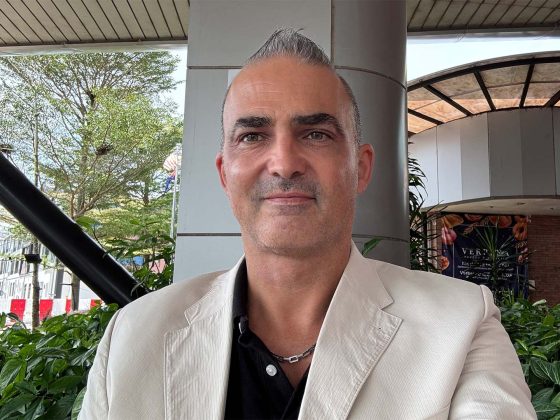Ash Khandelwal is not a conventional figure in private equity. While many investors chase trends, Khandelwal is questioning the very structure of how capital is being deployed. “Venture capital should be about finding people who have the ideas and the vision, but not the means, and providing those to help them achieve those visions,” he says. Instead, he observes a shift toward control driven strategies, where investors oust founders and install their own teams. “Most venture capital firms nowadays are going more into takeover territory than acquisition territory,” he explains. “It’s very predatory. It doesn’t speak to the spirit of what venture capital is about.”
Khandelwal, who launched his first accredited venture at just 14 through MIT’s exclusive incubator, is Managing Partner of Ash Capital where he oversees over $30 million in assets across real estate, fintech, consumer tech, and early stage investments. His view of the future of venture capital is shaped by global deal flow, high yield strategies, and deep integration of artificial intelligence into both investment evaluation and decision making.
Venture Capital’s Strategic Drift
For Khandelwal, venture capital is being bent toward profit centric tactics that often sideline founders. “They’re bringing in these companies and setting unrealistic targets in order to oust the CEOs,” he says. “It seems more like a marketplace where these venture capitals are going and buying products rather than investing in companies.”
He attributes part of this shift to the increasing role of AI. “There’s AI that can code a mobile app, a web platform, an entire SaaS platform in under a day,” he says. “You almost don’t even care about the founders anymore because the technology itself can improve itself, fix itself, beat itself.” As AI lowers the barriers to product creation, Khandelwal sees firms focusing less on people and more on output, a trend he views with caution.
Emerging Markets: Reading Beyond the Metrics
Khandelwal’s investment approach takes him far beyond the traditional venture capital strongholds. “In global markets, it comes down to your knowledge of the local ecosystem, the local economy, the local people,” he says. “A lot of VC firms struggle with the international part of international business.”
Dubai, in particular, stands out. “On paper, it may not look like the best investment market because it’s heavily reliant on tourism. But if you understand the fundamentals, the ambition, and the contributions by the Sheikh, it is one of the most sound investments there are.” “Khandelwal points to the Gulf country’s bold roadmaps plans for the future, like Vision 2050, as clear signals of national commitment to innovation,” he says.
He advises investors to watch for countries that actively support growth. “Startup activity goes to the path of least resistance,” he says. “Look for places investing in their growth and expansion. Countries like Dubai will tell you outright what they’re doing to attract innovation. They’re offering discounted housing, help with permits, tax benefits. It’s all very clear that they want people there.”
While Ash Capital also evaluates real estate in South America, Khandelwal calls Dubai “the best startup market right now,” citing its long-term vision and lack of short-term trade-offs. “They’re focused on the big picture, and that’s rare.”
AI as a Deal Filter and Decision Engine
At Ash Capital, artificial intelligence has become an integral tool for evaluating investments. “We get close to 100 to 200 applications from startups on a daily basis,” Khandelwal says. “With the team size we have, it doesn’t make sense to go through all of them manually.” AI parses applications, highlights red flags, and narrows focus for the investment team. “It allows us to make decisions faster and with more confidence,” he says. Just recently, the firm was able to respond to a pitch within days instead of weeks. “Thanks to AI, we completed due diligence quickly and met their deadline.”
AI also improves collaboration within his team. “A lot of our advisors aren’t from finance backgrounds. AI helps break down complex documents like PPMs and cap tables so everyone can understand and weigh in. That kind of access to information builds more trust in our decisions.”
For individual investors, Khandelwal believes AI will reduce long-standing barriers. “The gap between institutional and independent investors is going to narrow,” he says. “The capital side will always be different, but AI will close the gap on the information side. It can walk someone through the entire investment process, even if they’re starting from scratch.”
In AI, Distribution Wins
When it comes to investing in AI-driven companies, Khandelwal emphasizes that strong technology is not enough. “Technology is not protected anymore,” he explains. “People can change a few lines of code and get around any patent or trademark.”
Instead, he focuses on one metric: distribution. “You may not have the best product, but if you can distribute better than anyone else, that’s what matters,” he says. “It’s a lot easier to keep someone than convert them. If people are already using your product and it’s working, they’ll stay even if a better one comes out.”
Redefining What Capital Should Do
Private equity must remain a dynamic system, one that is agile, accessible, and integrates emerging technology and overlooked markets. Khandelwal sees this evolution as both a necessity and an opportunity. “Private equity needs to be about building resilient systems that can evolve quickly,” he says. “You have to know where the world is going, not just where the money is right now.” For Ash Capital, this means looking beyond traditional frameworks and embracing tools and markets that others often ignore.
To follow Ash Khandelwal’s latest insights, connect with him on LinkedIn.




